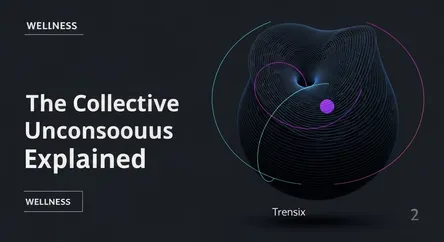Wellness
The Collective Unconscious Explained

Discover Carl Jung's concept of the collective unconscious, a shared reservoir of human experiences and symbols that influences our modern lives.
What is it?
The collective unconscious is a concept developed by Swiss psychiatrist Carl Jung. It refers to a deep layer of the unconscious mind that is genetically inherited and not shaped by personal experience. Jung proposed that this part of the psyche is shared among all human beings, containing universal, primordial images, patterns, and symbols known as archetypes. These archetypes—such as the hero, the mother, or the shadow—originate from the common ancestral experiences of humanity. Unlike the personal unconscious, which holds an individual's forgotten or repressed memories, the collective unconscious connects us to all of humanity, past and present.
Why is it trending?
The idea of a shared psychic blueprint is resonating in a globally connected world. Discussions around the collective unconscious are appearing in wellness and mindfulness circles as people seek deeper self-understanding beyond individual experiences. The concept is also used to analyze modern phenomena, with some suggesting the internet, social media trends, and viral memes act as a contemporary expression of the collective unconscious. By tapping into shared symbols and narratives, these digital interactions reveal the ancient archetypes at play in our modern lives, making Jung's century-old theory more relevant than ever.
How does it affect people?
The collective unconscious influences thoughts, emotions, and behaviors in subtle yet powerful ways. It shapes our instinctive reactions and can explain why different cultures share similar myths and symbols. Understanding this concept can be empowering for personal growth. By recognizing archetypal patterns in their lives—through dreams, art, or relationships—individuals can gain profound insights into their motivations and fears. This awareness helps in integrating different aspects of the personality, fostering a sense of wholeness and connection to the broader human experience, a process Jung called individuation.